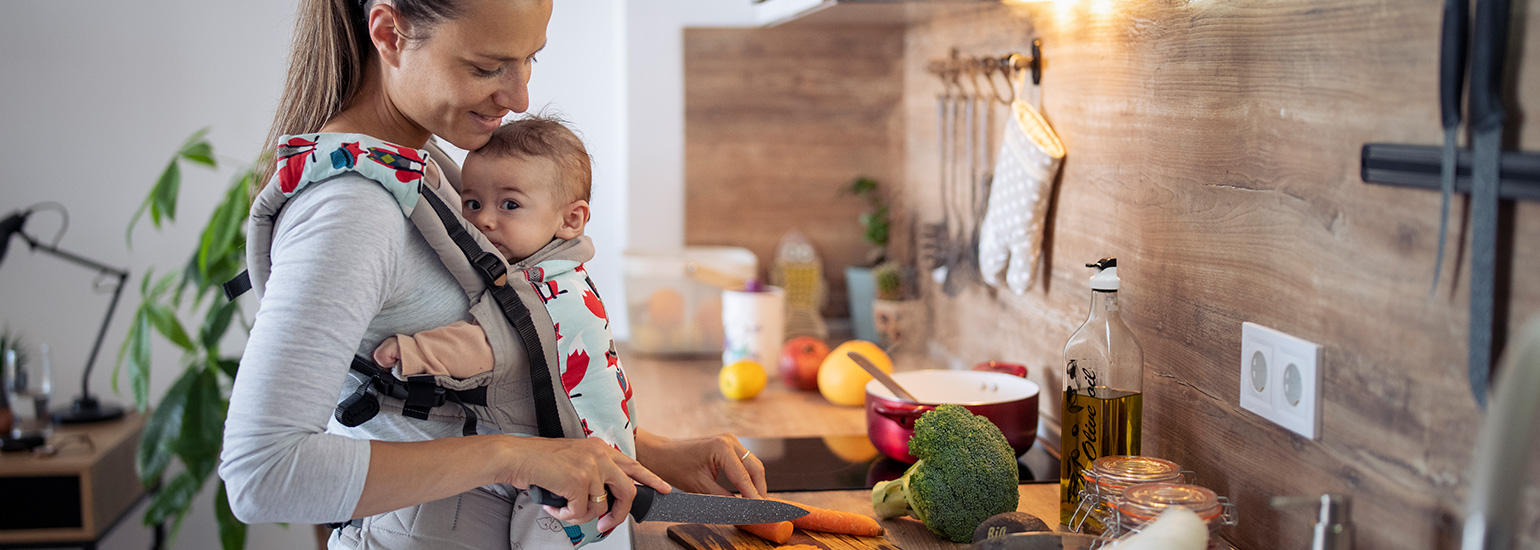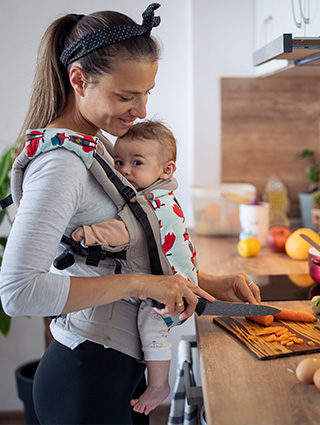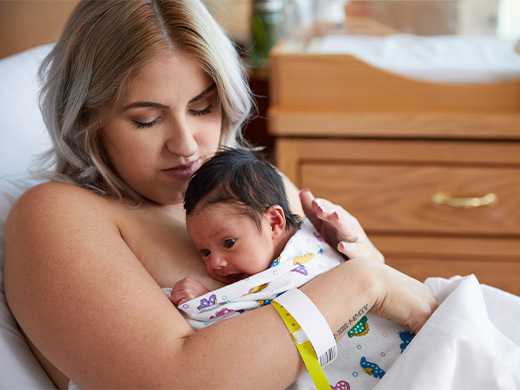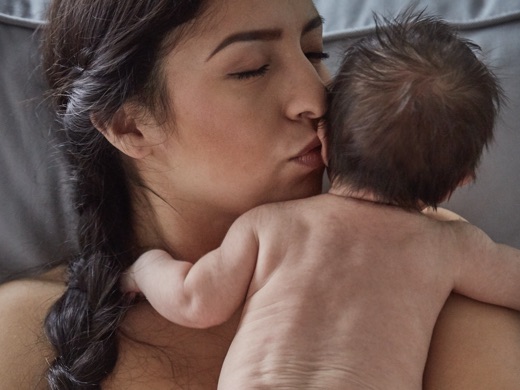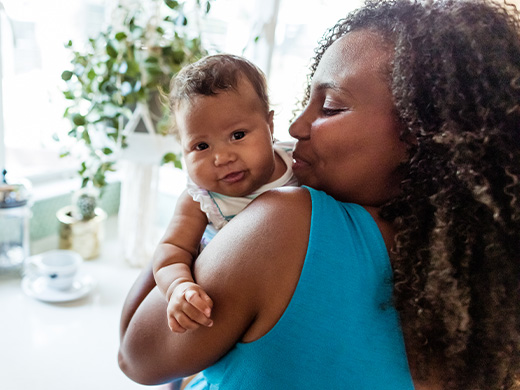Yes! Flavors from foods you eat can pass through your breastmilk and introduce your baby to new tastes. Eat a wide variety of foods, including spices and seasonings, as this will help your baby become familiar with the flavors of the foods your family eats.
Unless your health care provider tells you differently, you do not need to avoid common food allergens like eggs, nuts or dairy while you are breastfeeding. If you think your baby has a food sensitivity or allergy, talk to your health care provider and a lactation consultant. Many times, they can work with you to make small changes to your diet that will allow you to continue breastfeeding with ease.
